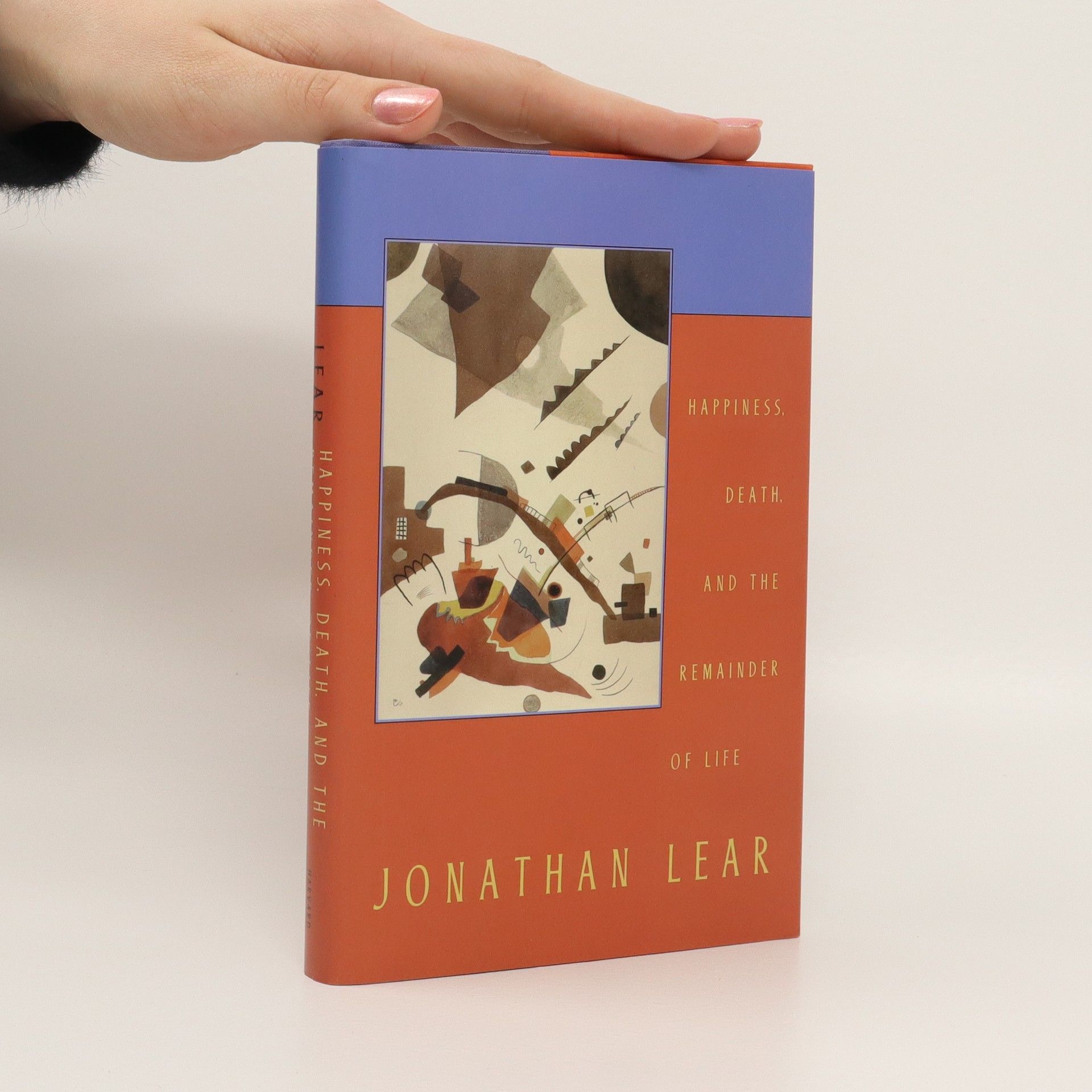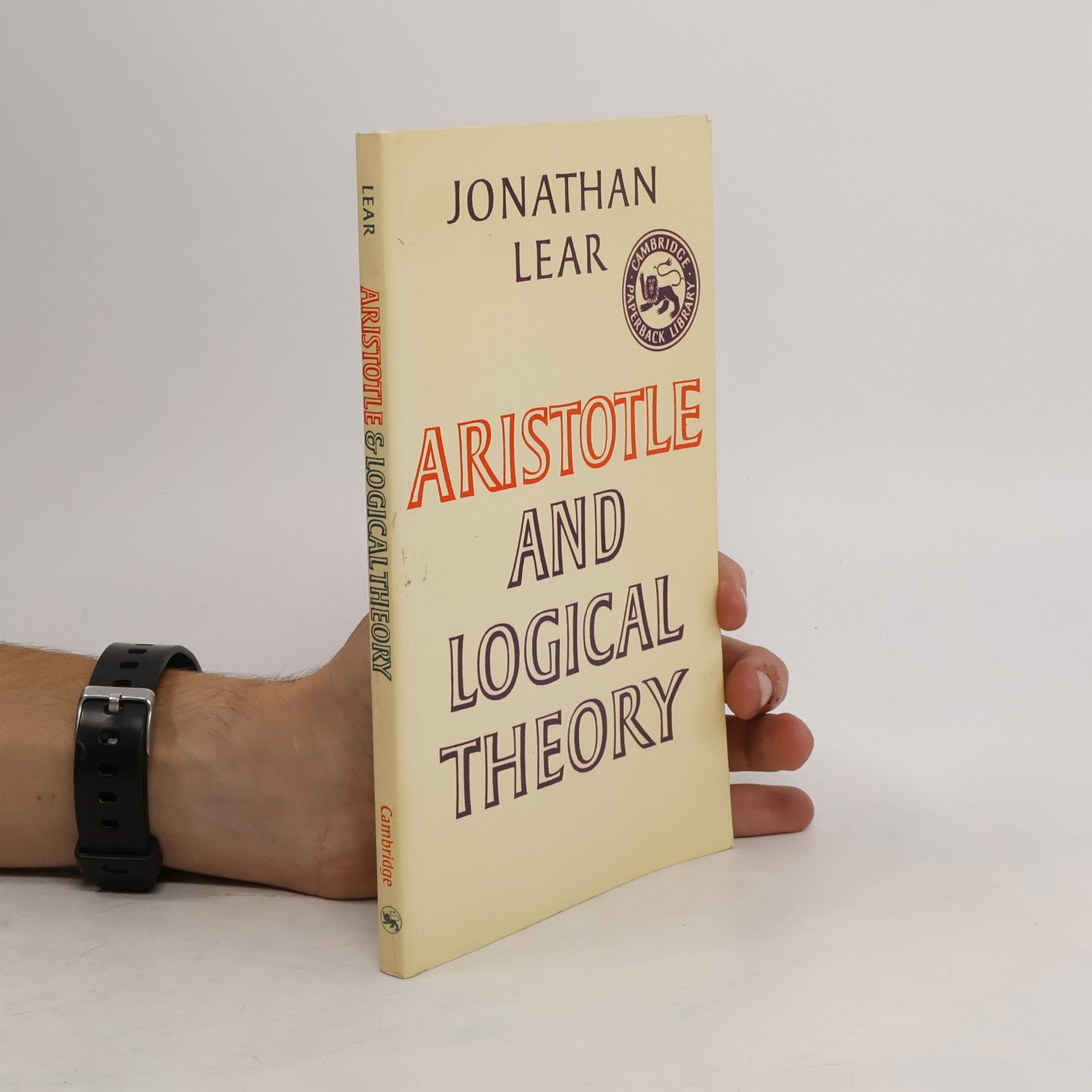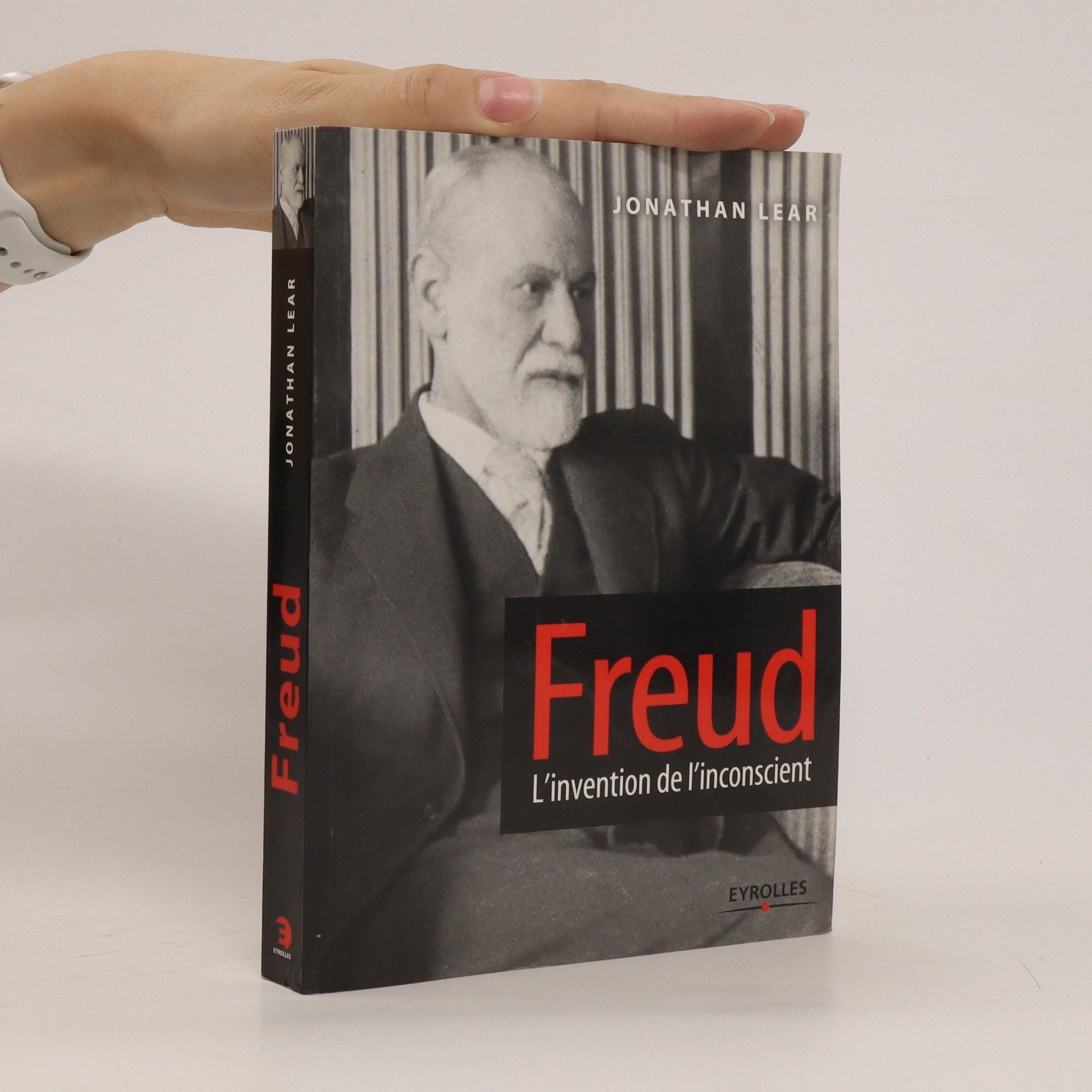Exploring the intersection of mortality and purpose, the book delves into how individuals can endure amidst global crises and cultural decline. Jonathan Lear emphasizes mourning as a pathway to resilience and growth, drawing inspiration from moral exemplars to illuminate the potential for goodness in challenging times. Through this reflective journey, the narrative encourages readers to confront despair while seeking meaningful existence.
Jonathan Lear Book order (chronological)
Jonathan Lear delves into the philosophical understanding of the human psyche and the ethical implications that arise from our nature as creatures. His work primarily focuses on philosophical conceptions of the human mind, spanning from Socratic times to the present day. Lear integrates philosophy with psychoanalysis, offering profound insights into the human condition. His writings explore how our internal motivations and character shape our ethical conduct.







Imagining the End
- 160 pages
- 6 hours of reading
Jonathan Lear's insightful meditation joins the end of the world to the end- that is, the purpose-of living. How to persist in the face of planetary catastrophe and the realization that even cultures can die? Lear sees in mourning an avenue of thriving and turns to a handful of moral exemplars to refine our sense of the good we can yet achieve.
Radikale Hoffnung
Ethik im Angesicht kultureller Zerstörung
Auf Grundlage der Anthropologie und Geschichte der nordamerikanischen Ureinwohner sowie mittels Philosophie und psychoanalytischer Theorie erforscht Jonathan Lear die Geschichte des Volkes der Crow im Angesicht der kulturellen Zerstörung. Sein Buch ist eine tiefschürfende und höchst originelle philosophische Studie über eine eigentümliche Verletzlichkeit, die den Kern der conditio humana betrifft. Wie sollen wir mit der Möglichkeit umgehen, dass unsere eigene Kultur zusammenbrechen könnte, wie mit dieser Verwundbarkeit leben? Ist es sinnvoll, sich einer solchen Herausforderung mutig zu stellen?
Exploring the intersection of psychoanalysis and moral philosophy, the book examines whether reason can integrate the nonrational aspects of the psyche into a comprehensive understanding of humanity. Jonathan Lear argues that without addressing this integration, philosophy loses its connection to real human experiences. The work serves as a foundation for ethical considerations on how to live, emphasizing the importance of understanding both rational and nonrational elements of the human condition.
Aristotelés. Touha rozumět
- 368 pages
- 13 hours of reading
Filosofický úvod do Aristotelova myšlení. Jeho autor si volí stejné východisko jako sám Aristotelés, který v první větě své Metafysiky tvrdí, že všechny lidské bytosti touží svojí přirozeností po porozumění. Avšak co pro nás znamená, že jsme v tomto světě vedeni touto touhou? Co znamená, že nějaký tvor má svoji přirozenost? Co je naše, lidská, přirozenost? Jaký musí být svět, je-li poznáván rozumem, a jací musíme být my, máme-li mu systematicky porozumět? Zkoumáním těchto otázek nás Jonnathan Lear uvádí do podstaty Aristotelovy filosofie a prová-zí nás ústředními pasážemi jeho Fyziky, Metafyziky, Etiky, Poli-tiky, jeho biologických a logických spisů. Kniha je psána jasným stylem, jímž chce autor přimět čtenáře k aktivní účasti. Může se stát podnětným úvodem pro všechny studenty filosofie a pro široký okruh zájemců o Aristotela, tohoto giganta západních duchovních dějin.
Guerrilla Teaching
- 216 pages
- 8 hours of reading
Guerrilla Teaching is a revolution. Not a flag-waving, drum-beating revolution, but an underground revolution, a classroom revolution.
A Case for Irony
- 224 pages
- 8 hours of reading
Vanity Fair has declared the Age of Irony over. Joan Didion has lamented that Obama s United States is an irony-free zone. Here Jonathan Lear argues that irony is one of the tools we use to live seriously, to get the hang of becoming human. It forces us to experience disruptions in our habitual ways of tuning out of life, but comes with a cost.
Radical Hope
- 208 pages
- 8 hours of reading
Presents the story of Plenty Coups, the last great Chief of the Crow Nation. This title contains a philosophical and ethical inquiry into a people faced with the end of their way of life.
Freud. L'invention de l'inconscient
- 322 pages
- 12 hours of reading
Notre époque est dominée par le mythe de la transparence : de la sociologie aux neurosciences en passant par l'économie, tout concourt à réduire nos comportements à des explications rationnelles. Pourtant, à trop vouloir rationaliser, ne perdons-nous pas de vue l'humain ? Au-delà des schémas de la raison, demeure pour nous une question essentielle : "Comment vivre ?", ainsi que la nécessité d'y répondre. C'est justement l'objet de la psychanalyse : en renonçant à la rationalité, Freud a relevé le pari de nous aider à mieux vivre. Loin d'être invalidées, ses intuitions sur l'inconscient sont aujourd'hui en passe d'être confirmées par les découvertes de la neurobiologie. C'est pourquoi nous ne pouvons pas ignorer Freud. Par son approche transversale, parfois iconoclaste, ce livre s'applique à nous montrer comment les concepts de la psychanalyse gardent toute leur actualité. À travers cette introduction philosophique, Jonathan Lear nous ramène à l'essentiel de nos préoccupations sur le bonheur, la liberté et les valeurs.
Freud
- 260 pages
- 10 hours of reading
In this fully revised and updated second edition, the author clearly introduces and assesses all of Freud's thought, focusing on those areas of philosophy on which Freud is acknowledged to have had a lasting impact. Essential reading for anyone in the humanities, social sciences and beyond.

